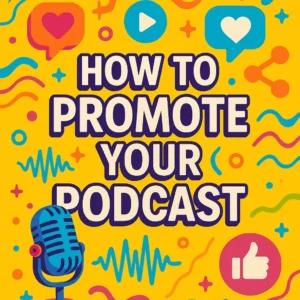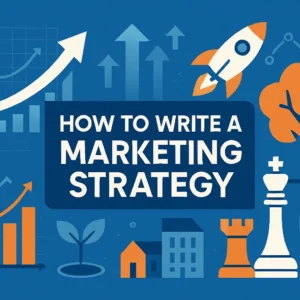
Securing your ideal marketing job without prior experience might appear challenging, but it’s achievable with the right strategy. The marketing industry is thriving, with 860,000 job openings for Digital Marketing Specialists alone. This expansion means there are plenty of opportunities for those eager to learn and adapt.
Focusing on strategy and determination can lead to success. Many people have switched to marketing roles, proving that experience isn’t always required. With the right mindset and resources, you can learn how to land a marketing job and kickstart your career in this exciting field.
Key Takeaways
-
Identify your marketing niche by exploring various roles, such as digital marketing, content marketing, and social media marketing, to find what aligns with your interests and strengths.
-
Enhance your skills through online courses and certifications from platforms like Coursera and Udemy, focusing on essential areas like digital marketing and content creation.
-
Gain practical experience through internships, volunteering, or freelancing to build your resume and develop a strong portfolio showcasing your work.
-
Utilize networking strategies, such as optimizing your LinkedIn profile and attending industry events, to connect with professionals and uncover job opportunities.
-
Craft tailored applications by highlighting transferable skills and personalizing your resume and cover letter for each job to stand out to employers.
Identify Your Marketing Niche
In this section we will explore different marketing roles and help you assess your interests and strengths to find your ideal niche.
Explore Different Marketing Roles
Marketing offers a variety of roles, each with unique responsibilities and skill requirements. Exploring these roles can help you determine which path aligns best with your interests and strengths.
Digital Marketing
Digital marketing promotes products or services through digital channels. This role requires both creativity and analytical skills to create successful online campaigns. You may work with SEO, PPC, or email marketing. The demand for digital marketing professionals is strong, with many job opportunities.
Content Marketing
Content marketing focuses on creating valuable and relevant content to attract and engage a target audience. This role suits individuals who enjoy storytelling and have a knack for writing. As a content marketer, you will develop blog posts, videos, and social media content that resonate with your audience. Your goal will be to build brand awareness and drive customer engagement through compelling narratives.
Social Media Marketing
Social media marketing involves using platforms like Facebook, Instagram, and Twitter to connect with audiences and promote brands. This role requires creativity and strong communication skills. You will create engaging content, manage social media accounts, and analyze performance metrics. Social media marketers play a vital role in shaping a brand’s online presence and fostering community engagement.
Assess Your Interests and Strengths
Once you have explored different marketing roles, it’s time to assess your interests and strengths. This self-assessment will guide you in choosing a niche that aligns with your passions and skills.
Skills Assessment
Start by evaluating your current skills. Consider what you excel at and what you enjoy doing.
Are you a natural communicator, or do you have a flair for design? Identifying your strengths will help you determine which marketing role suits you best. You can also take online assessments to gain insights into your skills and how they align with various marketing roles.
Passion and Interest Alignment
Your passion plays a significant role in your career satisfaction and success. Reflect on what excites you about marketing.
Is it the creativity in crafting campaigns or the challenge of analyzing data to improve performance? Aligning your interests with your chosen niche will keep you motivated and engaged in your marketing career.
Exploring various marketing roles and understanding your interests and strengths can help you find a niche that matches your passions and skills, laying the groundwork for a successful, fulfilling career.
Gain Relevant Skills and Experience
As I mentioned earlier, getting an entry-level marketing job without experience may seem impossible, but gaining relevant skills and knowledge is key to opening doors in this fast-paced industry. In this section, you’ll discover how to enhance your skill set through online courses, internships, and freelancing projects.
Online Courses and Certifications
Online courses offer a flexible and accessible way to build your marketing knowledge. They allow you to learn at your own pace and focus on areas that interest you the most.
Platforms to Consider
Several platforms provide high-quality marketing courses. Coursera, Udemy, and HubSpot Academy are popular choices. These platforms offer courses ranging from digital marketing fundamentals to advanced strategies. They also provide certifications to boost your resume and demonstrate your commitment to learning.
Recommended Courses
When selecting courses, consider those that cover essential marketing skills. Look for courses on digital marketing, content creation, and social media management. These areas are essential ingredients for an entry-level marketing job. Completing these courses will give you the technical skills to succeed in different marketing roles.
Internships and Volunteering
Internships provide hands-on experience and a glimpse into the marketing world. They are invaluable for building your resume and expanding your professional network.
Finding Opportunities
To find internship opportunities, explore job boards like Indeed and LinkedIn. Many companies post openings for marketing interns. You can also contact local businesses or non-profits to inquire about volunteer opportunities. These experiences can provide practical insights and help you develop core competencies.
Making the Most of Internships
During your internship, focus on learning as much as possible. Take initiative, ask questions, and seek feedback. This proactive approach will enhance your learning experience and demonstrate your eagerness to grow.
Remember, internships are not just about gaining experience but also about building relationships that can lead to future job opportunities.
Freelancing and Side Projects
Freelancing allows you to apply your skills in real-world scenarios. It offers flexibility and the chance to work on diverse projects.
Building a Portfolio
As a freelancer, you can create a portfolio showcasing your work. Include examples of campaigns you’ve managed, content you’ve created, and results you’ve achieved. A strong portfolio is a powerful tool when applying for an entry-level marketing job. It provides tangible evidence of your abilities and accomplishments.
Networking with Clients
Freelancing also helps you build a network of clients and industry contacts. Engage with your clients professionally and deliver quality work. Satisfied clients can provide referrals and testimonials, enhancing your credibility in the marketing field.
You can gain the skills and experience needed to secure an entry-level marketing job by pursuing online courses, internships, and freelancing opportunities. These steps will prepare you for a successful career in marketing, even without prior experience.
How to Get a Job in Marketing
Networking Strategies
Networking plays a crucial role in how to get a marketing job. Building connections can open doors to opportunities that might not be advertised publicly. Here are some strategies to enhance your networking efforts:
Leveraging LinkedIn
LinkedIn is a powerful tool for connecting with industry professionals. Start by optimizing your profile to reflect your skills and interests. Join marketing groups and participate in discussions to showcase your knowledge.
Reach out to professionals in your desired field and request informational interviews. This approach helps you learn more about the industry and builds relationships that could lead to job opportunities.
Attending Industry Events
Industry events provide a platform to meet professionals face-to-face. Attend conferences, workshops, and seminars related to marketing. These events offer a chance to engage with experts and peers, expanding your network.
Approach these interactions with a mindset of offering value and support. Research attendees beforehand to identify individuals you want to connect with. This preparation will help you make meaningful connections and leave a lasting impression.
Utilizing Job Boards
Job boards are essential tools in your quest to get a job in marketing. They provide access to many opportunities and allow you to tailor your search to specific roles and locations.
Best Platforms for Marketing Jobs
Several job boards specialize in marketing positions. Websites like Indeed, Glassdoor, and MarketingHire offer extensive listings for marketing roles. These platforms allow you to filter jobs based on your preferences, making finding positions that match your skills and interests easier.
Regularly check these sites to stay updated on new openings.
Setting Up Job Alerts
Job alerts can save you time and ensure you don’t miss out on opportunities. Set up alerts on job boards to receive notifications about new marketing positions. Customize these alerts based on keywords, location, and job type. This proactive approach keeps you informed and ready to apply as soon as a suitable position becomes available.
Crafting a Standout Application
Creating a standout application is crucial in securing a marketing job. Your application materials serve as your first impression and must reflect your potential and enthusiasm for marketing careers. In this section, you’ll learn how to craft a compelling resume, write an effective cover letter, and build a portfolio that showcases your skills and achievements.
Resume Tips
Your resume is a snapshot of your professional journey. It should highlight your strengths and make you an attractive candidate for marketing careers.
Highlighting Transferable Skills
Even if you lack direct experience in marketing, you likely possess valuable skills in this field. Focus on transferable skills such as communication, creativity, and analytical thinking. Use specific examples to demonstrate how you’ve applied these skills in past roles.
For instance, if you’ve managed projects or led teams, emphasize your leadership and organizational abilities. Quantify your achievements whenever possible to provide concrete evidence of your capabilities.
Tailoring for Each Application
Each marketing role is unique, and your resume should reflect that. Tailor your resume for each application by aligning your skills and experiences with the job description. Highlight relevant accomplishments and responsibilities that match the employer’s needs. This customization shows your attention to detail and genuine interest in the position.
Writing an Effective Cover Letter
Your cover letter lets you tell your story and personally connect with potential employers. It should complement your resume and provide deeper insights into your suitability for marketing careers.
Personalization and Storytelling
Personalize your cover letter for each application. Address the hiring manager by name and reference specific details about the company and role. Use storytelling to illustrate your passion for marketing.
Share a brief anecdote or experience that highlights your enthusiasm and dedication. This approach makes your application memorable and engaging.
Demonstrating Passion for Marketing
Express your passion for marketing by discussing your understanding of the industry and its trends. Highlight any relevant projects or experiences that demonstrate your commitment to marketing careers. Emphasize your eagerness to contribute to the company’s goals and your readiness to learn and grow within the role.
Building a Portfolio
A well-crafted portfolio can set you apart from other candidates. It provides tangible evidence of your skills and achievements, making it an essential component of your application for marketing careers.
Showcasing Projects and Results
Include a variety of projects in your portfolio that showcase your marketing skills. Highlight campaigns you’ve worked on, content you’ve created, and results you’ve achieved. Use visuals and data to illustrate your impact.
For example, include metrics to support your claims if you increased social media engagement or improved website traffic.
Using Online Platforms
Leverage online platforms to present your portfolio professionally. Websites like Behance or LinkedIn allow you to create a digital portfolio that is easily accessible to potential employers. Ensure your portfolio is well-organized and visually appealing. Include a brief introduction and contact information to make it easy for employers to reach out.
Crafting a standout application requires effort and attention to detail. By highlighting your transferable skills, personalizing your cover letter, and building a strong portfolio, you can effectively showcase your potential and passion for marketing careers.
These steps will help you make a lasting impression and increase your chances of landing your desired marketing role.
Overcoming Potential Challenges
Common Mistakes to Avoid
Avoiding common pitfalls can significantly enhance your chances of landing a marketing job. Here are some mistakes you should steer clear of:
Generic Applications
Sending out generic applications is a common mistake. Employers receive numerous applications, and a one-size-fits-all approach won’t make you stand out. Tailor each application to the specific role and company. Highlight relevant skills and experiences that align with the job description. This personalized approach demonstrates your genuine interest and increases your chances of getting noticed.
Lack of Follow-Up
Failing to follow up after submitting an application or attending an interview can be detrimental. A simple follow-up email can reinforce your interest in the position and keep you on the employer’s radar.
Express gratitude for the opportunity and reiterate your enthusiasm for the role. This proactive step can set you apart from other candidates who neglect this key aspect.
Addressing Common Concerns
Navigating the marketing job market can be daunting, especially with the challenges many face today. Let’s address some common concerns and how you can tackle them:
Imposter Syndrome
Imposter syndrome affects many aspiring marketers. You might doubt your abilities and feel unworthy of the opportunities you seek. Remember, everyone starts somewhere. Focus on your strengths and the unique perspectives you bring to the table. Engage in continuous learning to build confidence in your skills. Surround yourself with supportive peers and mentors who can provide encouragement and guidance.
Competition in the Job Market
The marketing job market is competitive. Many candidates feel overwhelmed by the number of applicants vying for the same positions. According to recent surveys, nearly 80% of candidates have experienced being ghosted, and over one in three have been searching for more than six months.
To stand out, focus on building a strong personal brand. Showcase your expertise through online platforms and engage with industry communities. Networking can open doors to opportunities that aren’t publicly advertised.
|
Challenge |
Percentage of Candidates Affected |
|---|---|
|
Ghosted by Employers |
80% |
|
Searching for Over 6 Months |
33% |
|
Refusal to Apply (100+ Apps) |
25% |
|
Optimistic About Job Market |
15% |
Once you decide to start your career in the marketing field, try to focus on identifying your niche, gaining relevant skills, and crafting standout applications. Persistence is key in your job search. Tailor each application to stand out and directly contact companies for better results. Networking remains crucial; nurture your connections and stay informed about industry trends. Continuous learning will keep you competitive. Embrace these strategies, and you’ll find yourself on the path to a rewarding marketing career.
FAQ
How important is networking in the marketing industry?
Networking plays a crucial role in the marketing industry. Building connections can open doors to opportunities that aren’t publicly advertised. Attend industry events, engage with professionals on LinkedIn, and join marketing communities to expand your network.
How do I tailor my resume for a marketing job?
Tailor your resume by highlighting transferable skills and aligning your experiences with the job description. Focus on communication, creativity, and analytical skills. Use specific examples to demonstrate your abilities and quantify achievements whenever possible.
What should I include in my marketing portfolio?
Your marketing portfolio should showcase a variety of projects that highlight your skills. Include campaigns you’ve managed, content you’ve created, and results you’ve achieved. Use visuals and data to illustrate your impact and make your portfolio visually appealing.
What are common mistakes to avoid when applying for marketing jobs?
Avoid sending generic applications and failing to follow up after submitting an application or attending an interview. Tailor each application to the specific role and company. A simple follow-up email can reinforce your interest and keep you on the employer’s radar.
How can I stay updated with marketing trends?
Stay updated with marketing trends by subscribing to newsletters and blogs from industry leaders like Moz, HubSpot, and Marketo. Attend marketing conferences and engage with online communities to exchange ideas and gain insights.
How do I handle rejections during my job search?
View rejections as opportunities for growth. Analyze feedback and identify areas for improvement. Remember, each rejection brings you closer to the right opportunity. Stay positive and keep refining your skills and applications.


